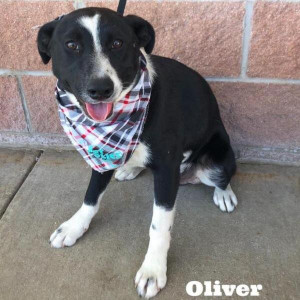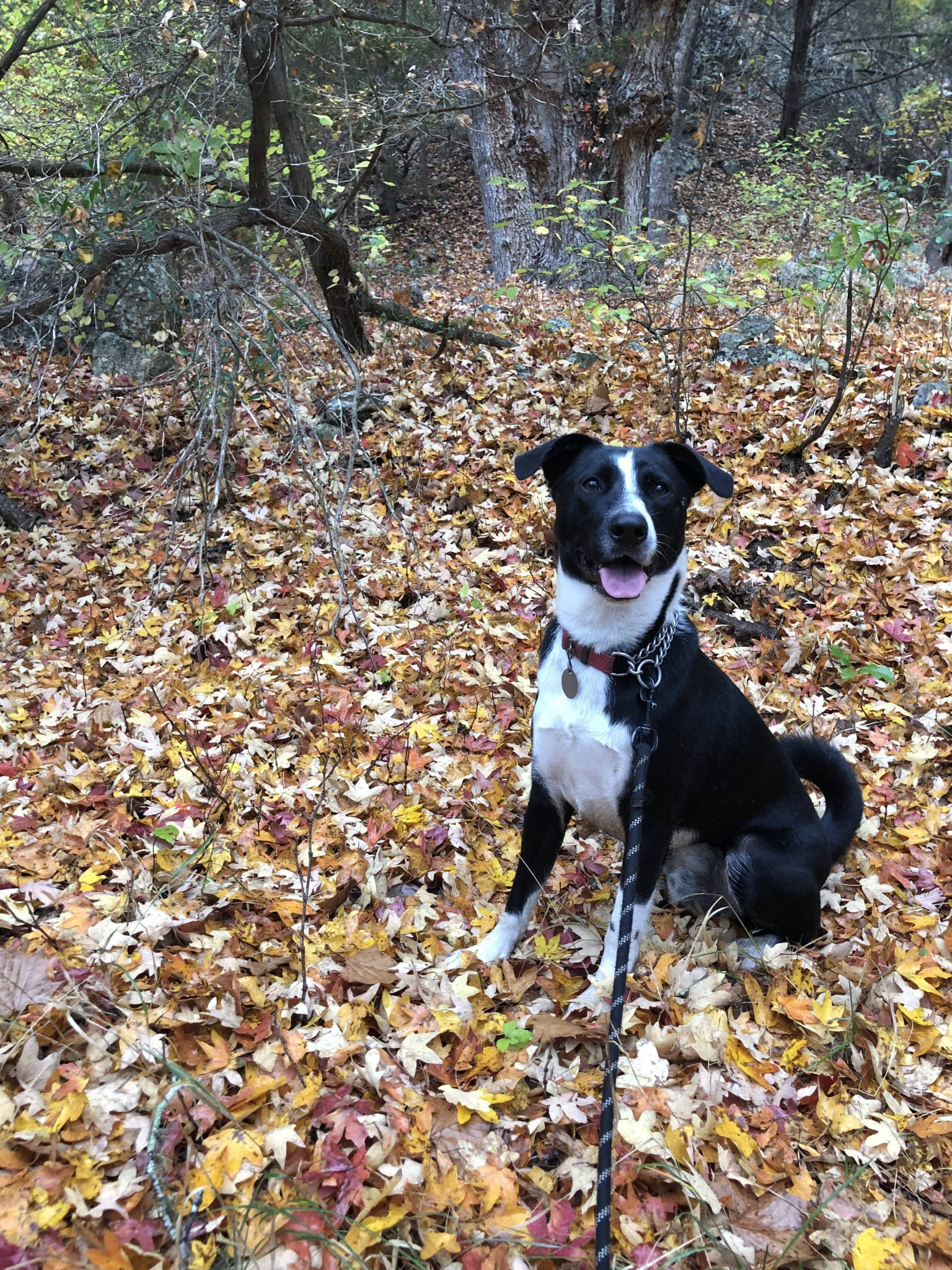An adorable stray dog rescued from the streets of Texas and given a new life in Britain nearly died … after he ate 25 poisonous acorns on his daily walk.
Four-year-old Ollie, a Border collie-mix, was adopted from an animal rescue centre in San Antonio by kind-hearted Rachel Lake and Cory Smith.
Then Rachel and Cory decided to uproot from heat-baked San Antonio – and start a new life with Ollie 5,000 miles across the Atlantic in Reading, Berkshire.
Rachel and Cory had to wrestle international bureaucracy to get Ollie here but were delighted to see him settling in well to his British adventure … until near-disaster struck three months after their arrival.
Ollie was on his regular walk in his new local park when Rachel and Cory stopped to talk to another dog owner they’d become friendly with.
And as the three chatted away while stood next to a tree, mischievous Ollie decided to pass the time by wolfing down mouthful upon mouthful of acorns.
Rachel said: “We must have been stood there for 20 minutes or so then, just as we were finishing up, out of the corner of my eye I saw Ollie chewing up an acorn and swallowing it.
“We didn’t think too much about it because acorns look so harmless, but it began playing on our minds a bit.

“Then we did some Googling and discovered that acorns are not harmless at all and are in fact poisonous for dogs because of the tannins they contain.
“At this stage we had no idea how many acorns he’d eaten, and Ollie didn’t show any signs of being ill. It was quite the reverse – he was actually looking very pleased with himself!
“Cory and I debated it back and forth for a bit then decided we really did need to get him checked over – and we are mightily relieved that we did.”
As it was the weekend and her regular vets was closed, Rachel called Vets Now, and our staff arranged for Ollie to be admitted straightaway to our Reading pet emergency clinic.
Our team checked Ollie over then gave him medicine to make him sick to clear his stomach – and were astonished when he produced no less than 25 separate acorns.
After a couple of hours at our clinic, Ollie was well enough to head home with Rachel, who is a business data analyst, and Cory, who works in cyber security.
Rachel said: “It was really frightening for us – even the thought of losing Ollie was incredibly upsetting. We think of him as part of our family.
“When we first took him in it was as foster carers because he’d developed kennel cough and couldn’t be adopted full-time before he was better.
“Our job was to look after Ollie while he returned to full health, at which point a family in Seattle were planning to adopt him.
“But the adoption fell through – which is just as well because we instantly fell in love with him.
“We’re lucky to have the kind of jobs that enable you to try out living in a new country, and that’s why we’ve ended up here in the UK.
“Acorns aside, Ollie’s lifestyle is much better in the UK than in Texas because the weather is so much cooler here and places here are much more dog friendly.
“But with autumn – or fall as we would call it in the US – coming up, we’re really keen for other owners to be aware of how dangerous acorns can be for dogs.”
Rachel added: “The whole team at Vets Now were brilliant with Ollie and very kind with us as well and we are really grateful to them.
“But in the nicest possible way we’re hoping that we and Ollie don’t need to see them again for quite a while!”
Emergency Vet Dave Leicester, head of telehealth at Vets Now, says this is a reminder that while owners might not think much of letting their dogs pick up an acorn, they can cause serious complications if ingested.
“Acorns look small and unthreatening, but they really are very dangerous to dogs if consumed in large quantities.
“The tannins in acorns are a type of chemical that is toxic for dogs and can lead to fatal liver and kidney failure. They also pose the potential risk of causing an intestinal blockage.” said Dave.
If your dog has eaten acorns or you think they might have done then it’s important to contact your vet or, out of hours, your nearest Vets Now immediately to ensure your dog receives treatment as quickly as possible.

